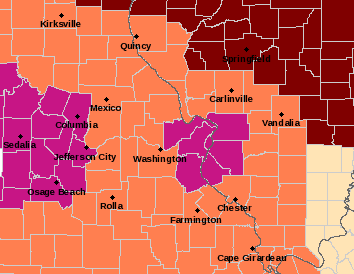Abigail Fallon | Staff Reporter
From Print [Dec. 2, 2014] | Legacy
I have recently been informed that over the course of my two-and-a-half years at Lindenwood University, I have been breaking one specific rule every single day.
I haven’t been drinking alcohol, having boys over past midnight, or stealing bananas from the cafeteria (well, not every day, at least). I have been carrying pepper spray.
According to the Lindenwood Student Handbook, “fireworks, firearms, explosives, BB guns, archery equipment, knives, or other items that may be considered weapons” are prohibited on campus. When The Legacy spoke to dean of students Terry Russell, we were informed that pepper spray is included in “other items”. I have three main arguments to this effect.
First, pepper spray should not be considered a weapon because if you wanted to physically harm another individual, you could do so much more efficiently simply by feeding them food from Spellmann (joke). But really, pepper spray is unlike a knife because it is harder to pull on someone abruptly, and unlike a gun because you have to be at close range to use it. It is a “weapon” specifically designed for self-defense, not assault.
Second, in the event that one might use pepper spray, it will cause extreme discomfort, and even pain, but no lasting damage. It does not draw blood, bruise, or break bones.
Third, when we students, girls in particular, are traveling off campus, we will be without pepper spray. If we aren’t allowed to keep it anywhere on campus, we are, by default, left without it when we go to women’s housing, Main Street, St. Louis, or anywhere else.
Only six states have restrictions on pepper spray, mostly concerning size, concentration, and place of sale. When the majority of its students are a) legal adults and b) the highest risk population for sexual assault, who is Lindenwood to tell us we can’t be prepared to protect ourselves? The administration should revise its policy to explicitly ban only the strongest, police-strength pepper spray and other harmful weapons rather than allowing a vague policy to ban the most reasonable option for self-defense.









